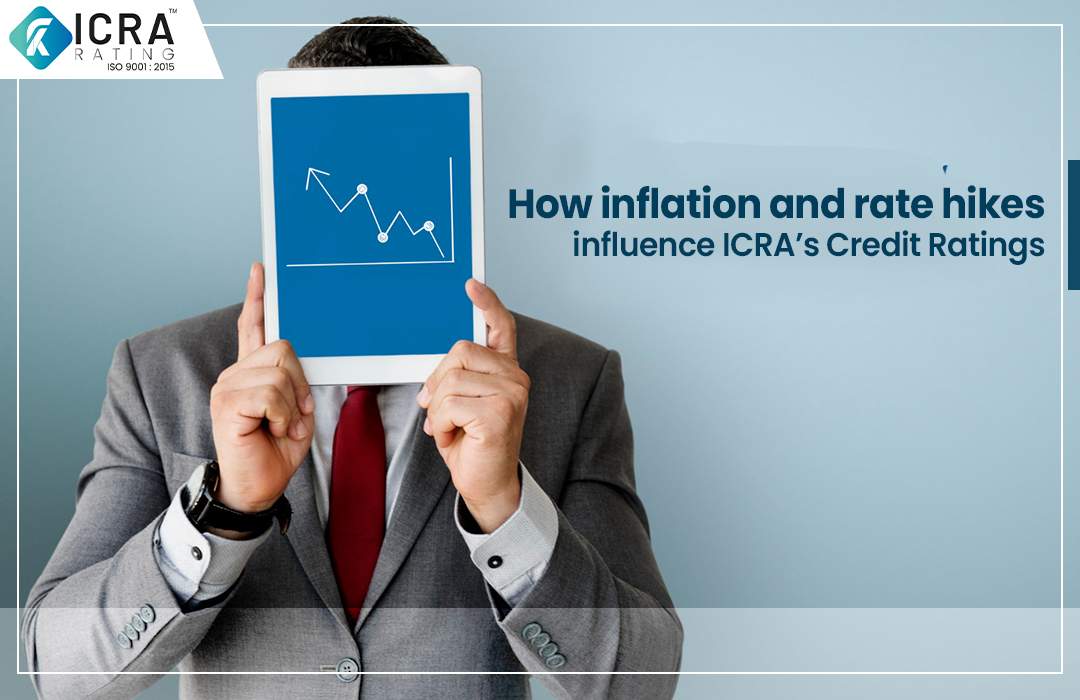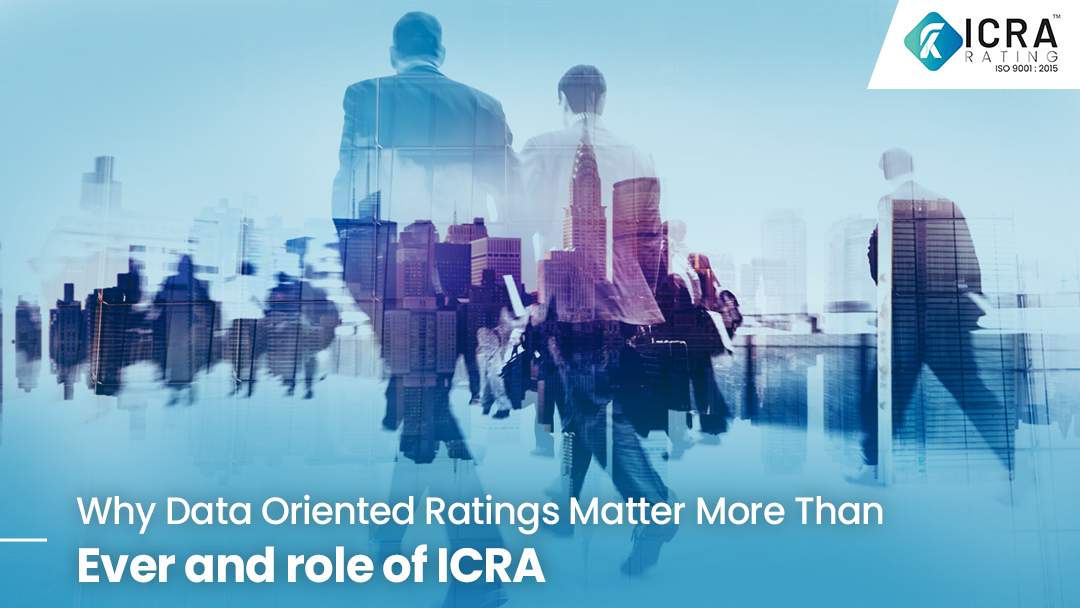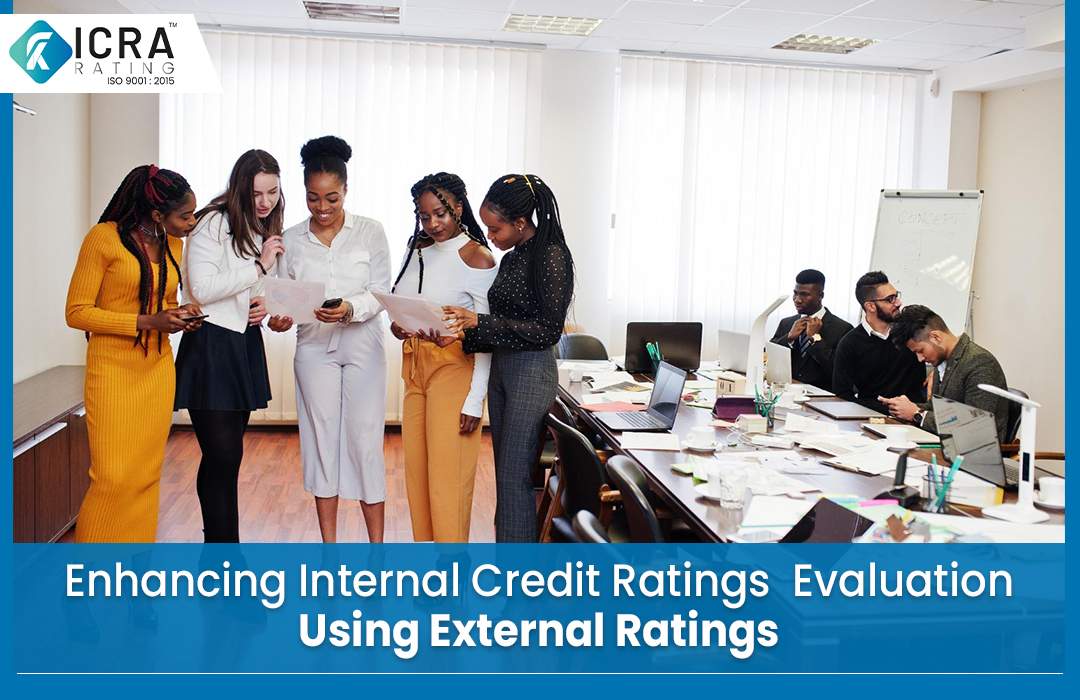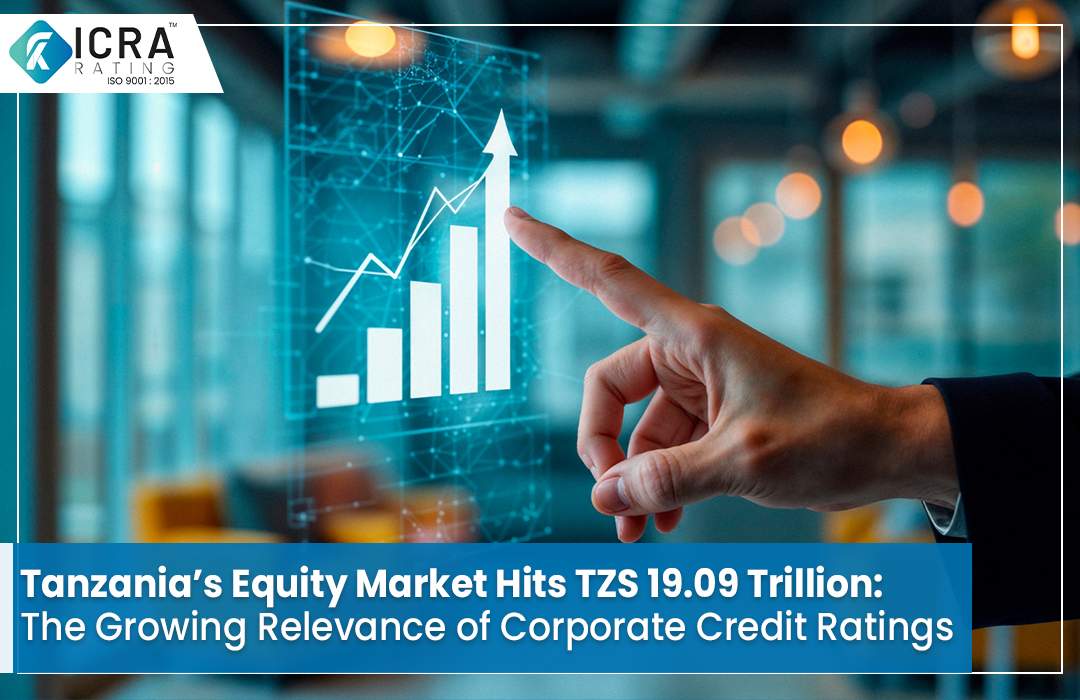How ICRA Zimbabwe Helps Businesses to Grow in a Competitive and Regulated World Owning business today is not only about selling good products or service in the market. Companies now operate in a highly competitive environment, where they have to follow strict rules and regulations. Governments, investors, and business partners expect discipline, clarity, and transparent financial behaviour. In the market ICRA Zimbabwe plays an important role by helping businesses to reflect their capabilities and strength in the market, where other stakeholders can trust them easily. A credit rating helps businesses explain their financial position clearly, especially when competition is high and trust should be earned. Competition Has Changed the Way Businesses Are Evaluated In the past, reputation and relationships played a very crucial and big role in business growth. Nowadays those are not adequate for businesses. Companies have to prove that they are performing well and have done a good job in making a place in the market. Many businesses struggle to present this information clearly. Financial data may be available, but it is often difficult to understand or compare. This creates doubts, even for capable companies. ICRA Zimbabwe helps solve this problem by turning complex financial and operational information into a clear and structured credit rating that others can easily understand. Understanding Rules and Regulations Rules and regulations are now part of daily business life. Companies must meet reporting standards, follow governance rules, and maintain financial discipline. Failing to do so can limit growth and reduce market opportunities. A credit rating from ICRA Zimbabwe shows how well a company follows these requirements. It reflects whether a business: Maintains proper records Plans finances responsibly Manages obligations carefully Has a structured decision-making process This gives confidence to regulators, investors, and partners that the company takes compliance seriously. How Credit Rating Supports Business Growth Growth requires support from external stakeholders. Whether a company wants to expand operations, enter new markets, or work with larger partners, it must show that it is reliable. A credit rating helps by: Creating a clear financial identity Reducing uncertainty for decision-makers Making comparisons with market players easier Building long-term confidence With help from ICRA Zimbabwe, businesses are able to communicate their strength without overexplaining or relying on assumptions. Helping Businesses Stand Out in a Crowded Market In competitive markets, many businesses may look similar on the surface. What sets one company apart is how well it manages risk and plans for the future. A credit rating highlights these differences. It shows not just current performance, but also how prepared the business is for changes in market conditions or regulations. Companies with clear ratings often find it easier to get attention from serious investors and partners, as the information they offer is organised and reliable. Improving Internal Discipline The rating process itself helps companies grow stronger. When ICRA reviews a business, it looks closely at financial planning, reporting quality, and management structure. This process often encourages companies to: Improve record-keeping Strengthen financial controls Plan cash usage better Review risk management practices These improvements support long-term growth and reduce unexpected problems. Supporting Better Decision-Making, Business growth comes with choices. Expanding too fast or without proper planning can create risk. Clear evaluations help management make balanced decisions. Reports from ICRA Zimbabwe provide insights that support better planning. They help leaders understand where their company is strong and where awareness is needed. This makes growth more controlled and manageable. Helping Investors and Partners Trust Faster Investors and partners operate under strict rules themselves. They must justify their decisions and manage risk carefully. Clear and independent ratings help them do this. A credit rating from ICRA Zimbabwe provides: Independent evaluation Structured financial insight Clear view of risk and stability This shortens review time and improves confidence. This allows businesses to move forward faster. Role of Credit Rating in Business Growth Area How Credit Rating Helps Competition Helps businesses stand out clearly Regulations Shows discipline and compliance Growth plans Supports structured expansion Investor Confidence Reduces uncertainty Internal Management Improves financial control Building a Stronger Business Environment When businesses follow rules and share clear information, then the markets will work better. ICRA Zimbabwe supports this by promoting transparency and accountability through professional assessments. Over time, this helps create an environment where growth is based on facts. Conclusion In a competitive and regulated world, growth depends on clarity and discipline. A credit rating helps businesses show how well they manage their finances, follow rules, and plan for the future. Through its structured and independent approach, ICRA Zimbabwe supports businesses in building confidence, improving operations, and growing responsibly.
Category: Uncategorized
Zambia’s Economic Growth Outlook Strengthens: A Timely Opportunity to Deepen Credit Rating Penetration
Zambia’s Economic Growth Outlook Strengthens: A Timely Opportunity to Deepen Credit Rating Penetration Zambia’s economic outlook continues to strengthen, with the Ministry of Finance projecting a GDP growth acceleration to 6.4% in 2026, up from 5.8% in 2025, and further momentum expected in the years ahead. This recovery—anchored in the resurgence of the mining and agriculture sectors—marks a critical turning point for the Southern African nation following last year’s regional drought and years of debt restructuring. The nation’s macroeconomic plan includes strategic investments in energy diversification—particularly solar power—to reduce dependence on hydropower, which has been vulnerable to climate shocks. Simultaneously, Zambia is scaling up copper production, with forecasts of over 1 million metric tons in 2026 and more than 1.3 million tons by 2028. This expansion is supported by significant private sector investments, including First Quantum Minerals’ $1.25 billion upgrade at Kansanshi and Enterprise, and Barrick’s $2 billion Lumwana expansion. Credit Ratings: A Pillar for Sustainable Economic Transformation While growth projections are encouraging, sustaining this trajectory requires more than just sectoral output. It demands financial transparency, investor confidence, and efficient capital mobilization—areas where credit ratings play a transformative role. As Zambia attracts global and regional investments, independent credit ratings provide a crucial benchmark for assessing the financial strength and governance of institutions across both public and private sectors. By promoting market discipline and risk transparency, ratings enable: Lower cost of capital for well-rated institutions Increased investor trust in public projects and SOEs Enhanced access to regional and international funding Better pricing of financial instruments, reducing systemic risk For banks and financial institutions, credit ratings support better regulatory alignment and capital planning, especially under evolving Basel III requirements. For corporates, ratings enhance their profile for trade finance, capital raising, and procurement qualification—vital in an economy with growing infrastructure and industrial ambitions. Empowering Local Institutions & Promoting Financial Sovereignty ICRA Rating, as a locally licensed and regionally recognized credit rating agency, plays a strategic role in Zambia’s evolving financial landscape. Our presence ensures that domestic institutions are assessed within local economic contexts, enabling fairer evaluation and promoting local financial inclusion. Furthermore, strengthening Zambia’s financial ecosystem through greater use of ratings helps diversify funding sources beyond donor support and external debt. It empowers pension funds, insurance companies, and other asset managers to allocate capital more prudently, guided by independent credit assessments. Supporting Government Priorities As the government pursues its medium-term fiscal consolidation and growth agenda, leveraging credit ratings at both sovereign and sub-sovereign levels can improve the transparency and attractiveness of government-related entities. This also aligns with international investor expectations, particularly under Zambia’s renewed engagement with global markets. Conclusion: Ratings for Resilience and Growth Zambia is on the cusp of a transformative growth phase. As economic fundamentals improve, integrating robust credit rating practices across the financial ecosystem will enhance trust, unlock funding, and build institutional credibility—foundations that are essential not just for growth, but for resilience and long-term prosperity. ICRA Rating remains committed to partnering with Zambia’s public and private sectors to build a transparent, investable, and inclusive financial future Source: https://www.reuters.com/sustainability/boards-policy-regulation/zambia-sees-economic-growth-picking-up-64-next-year-2025-07-21/
How inflation and rate hikes influence ICRA’s Credit Ratings
How inflation and rate hikes influence ICRA’s Credit Ratings Inflation and interest rate variation are two most critical macroeconomic reflectors that influence the financial ecosystem. For credit rating agencies like ICRA , these factors are instrumental in modifying the credit profiles of issuers across sectors. A change in inflation trends or central issuer policy rates can notably change the risk assessment of companies which can be responsible for affecting their credit ratings either positively or negatively. The Inflation Effect on Credit Risk Inflation, at its core, corrodes purchasing power. For companies, this means higher investment costs, whether it’s raw materials, or logistics. For ICRA, this lowers the earnings which is a red flag, especially in sectors where pricing power is weak. Companies functioning in commodity-heavy or regulated sectors are specifically endangered, as their ability to balance cost pressures is limited. Moreover, inflation can affect consumer behavior. which can affect sectors like consumer durables, automobiles, and real estate. Declining demand affiliated with cost pressure can affect cash flows, increase dependence on debt, and weaken the overall credit profile of the entity. From a macro side perspective inflation also obscures economic forecasts. Introducing greater uncertainty into the operating environment. For long-term projects and infrastructure investments, where revenues are projected over the years, inflation unpredictably increases the risk premium. ICRA, in such cases, adjusts its financial models and stress tests to showcase these elevated uncertainties, often leading to more conservative rating outcomes. Interest Rate Hikes Central issuers respond to inflation by hardening the policy, mainly through increasing the interest rates. While this is aimed at holding back inflationary pressures, it has direct consequences for corporate borrowers. Higher interest rates translate to enhance borrowing costs. ICRA evaluates these parameters attentively, which affects the ability to service debt and maintain sufficient coverage ratios. Fall in interest coverage rates or rising debt figures due to rate hikes can activate a rating downgrade. Moreover, rate hikes can cooldown investment sentiment. Companies may reduce or postpone expansion plans or capital expenditures, especially if cash flow in the future becomes uncertain. This change in corporate behavior can affect revenue projection and future strategies, which are important elements of ICRA’s rating assessments. On the other side, increasing loan rates can suppress demand for auto loans, housing loans, and consumer credit. This then affects the revenues of industries in these sectors. Financial institutions themselves are also affected. While they might initially benefit from higher net interest margins, a prolonged period of elevated interest rates can lead to rising delinquencies, especially in unsecured lending segments. ICRA precisely checks asset quality metrics during such periods, and increasing stress indicators in the NBFC sectors can lead to rating actions. The Interplay Between Macroeconomics and Credit Analytics ICRA integrates macroeconomics reflectors like inflation and interest rates into its analytic frameworks. This includes scenario analysis, stress testing, and projected models that tells how a company’s financials might respond to changing economic conditions. It is also important to note that ICRA’s ratings are not only dependent on short-term macro movements. Structured strengths, like strong governance, different revenue streams, or financial policies, can mitigate the effect of inflation rate hikes. Conclusion Inflation and interest rate hikes are more than just economic indicators, that modify corporate performance and financial health. For ICRA, these factors work as an essential input in evaluating creditworthiness of an entity or a business. But as we have seen, the variation in the inflation can affect the evaluation process. .
Why Data Oriented Ratings Matter More Than Ever and role of ICRA
Why Data Oriented Ratings Matter More Than Ever and role of ICRA Lenders, investors, and policymakers are regularly looking for reliable indicators to guide their decisions. While perspective may still play a major role in business because the stakes are way too high to rely on guesswork alone. This is where credit ratings viewed by deep analytics and strong methodologies have become not just helpful but indispensable. As Africa continues its growth in economy, the role of credible rating agencies like ICRA has never been more crucial. But ratings are not just about default probabilities. They are a gateway to better risk management, investment with information, and strategic growth. The Evolution of Credit Ratings Traditionally, credit ratings were seen as static indicators like a snapshot of an issuer’s creditworthiness. However, the modern credit structure is dynamic. Macro trends like supply chain changes the ESG regulations and global inflation that credit risk is now more complex and interconnected. ICRA has reacted accordingly to this shift by modifying its approach. It has leveraged advanced analytics, real-time data feeds, predictive modeling and sectoral insights to provide a more detailed picture of risk. It is not just about what rating is today, but it is about what it indicates for tomorrow. The ability to provide stable and forward-looking guidance during turbulent times is one of the major reasons most institutional investors and lenders rely on ICRA. Why Investors Trust Data Based Ratings Institutional Investors Mutual funds, pension funds, and insurance companies use ICRA’s ratings to see the value of their portfolios. With fiduciary responsibilities in mind, they need ratings that are independent, data-driven, and responsive to increasing risks. SMEs and Mid-Corporates For small and growing businesses, a strong ICRA rating gives way to cheaper capital, new investor interest, and better credit terms. It acts as a stamp of credibility in a market. NBFCs Lenders need to assess risk accurately before sanctioning huge amounts of loans. ICRA’s credit assessments help them to optimize risk-affiliated assets, comply with regulatory frameworks. Regulatory and Policymakers Government bodies increasingly rely on ratings as part of macroeconomic surveillance. A strong rating system provides transparency, early or advanced warnings, and accountability for systemic sensitivity. How ICRA Is Modifying the Future of Ratings Sectoral Expertise ICRA’s sector specialised team bring deep knowledge that adds context to ratings, especially important in times of economic policy change. Customized Insights Beyond ratings, ICRA provides special research and advisory services to corporates and financial institutions, assisting them with proper capital structure with a good business strategy and planning. Credit Ratings in the Age of Climate and Digital Risk ICRA is already merging its models to factor in ESG risks, carbon exposure, and flexibility planning into its credit frameworks. The same goes with the tech space, cybersecurity risk evaluation, data privacy practices, and digital shaping are increasingly influencing the perspective for companies in sectors like BFSI, logistics, and consumer tech. Conclusion In a world where clarity is power. Whether you are a startup seeking funding, an issuer underwriting a major loan, or a global investor entering a new market, the right rating can make all the difference. With its calculative methodology, technological innovation, and deep market insight, ICRA continues to be an assistance of Africa’s financial credibility. The future of finance is not just about access to capital, but it is also about access to trustworthy information.
How a Credit Rating Opens Doors to Capital and Partnerships
How a Credit Rating Opens Doors to Capital and Partnerships Access to capital remains one of the most crucial activators of business growth. Particularly in evolving markets where traditional lending systems are often risky. In this context, a crest rating functions more than a financial benchmark, it serves as a trust indicator to global stakeholders, development finance institutions (DFIs), and commercial issuers. It validates a company’s capability to meet its financial obligations and creates ways to strategic funding. An example of this dynamic is zambeef products Plc which is a leading and growing agribusiness in Zambia. Zambeef’s journey shows how securing credit rating from ICRA Rating Zambia acted for attracting substantial external funding, ultimately supporting a $100 million expansion initiative. Why Credit Ratings Matter More Than Ever In today’s globalized economy, businesses are not evaluated on the basis of their performance but also by how they are perceived by the financial ecosystem. This is where credit rating comes into play, it summarizes a company’s financial health, operational stability, and future. Take a look into the score that can be universally understood by investors and lenders. Companies with investment-grade ratings often enjoy: Lower borrowing costs Accessible long-term capital Enhanced credibility with partners and regulators Increased interest from institutional investors and DFIs The Zambeef Case: A Roadmap to Scaled Investment Zambeef products Plc, is one of the most established agribusiness entities of Zambia, it has achieved a BBB (Stable) national credit rating from ICRA Rating Zambia. This rating marked the company as financially stable with moderate credit risk, which appeals to risk conscious investors and lenders. With this rating Zambeef was able to: Secure a $32 million guarantee from AfDB (the African Development Bank) Unlock an expansion of $100 million aimed to strengthen its presence in the Zambia market Attract partnership with both development and commercial finance institutions What the Rating Indicated in the Market Zambeef’s rating was not merely symbolic. It provided a multi dimensional evaluation that goes with stakeholders. Operational Resilience: Zambeef’s integrated value chain and diversified revenue base were strong indicators of business performance and stability. Governance and Transparency: Compliance with regulatory requirements and clear reporting increases confidence in potential investors. The Role of ICRA in Market Development ICRA’s role goes beyond assigning ratings. As rating agency, it helps build financial systems by: Providing data-driven and independent assessments Encouraging financial discipline and transparency among rated firms Assisting policy goals around capital market development With localized expertise, ICRA Rating Zambia ensures that the risks and strengths of regional firms are precisely and correctly captured and reflected in the market. A Profitable Advantage for Business The Zambeef example shows how a credit rating can unlock approaches to structured finance, infrastructure guarantees, and blended capital models that would otherwise be out of reach or unapproachable. Accelerating growth strategies Entering new markets Attracting potential and strategic investors and partners Building resilience against sudden economic variations Conclusion Zambeef’s success is not an isolated case, it is a blueprint for businesses that are ready to refine but need access to strategic capital. A credit rating like BBB (Stable) assigned by ICRA, acts as a reliable and trusted indicator to the market, which opens doors to financial guarantees, expanded partnerships across the globe, and long-term sustainability. As the market evolves the companies strive for global relevance and excellent operation, getting a credit rating is not just a financial milestone, it is a strategic move toward sustainable growth. Considering a credit rating for your business? Reach out to ICRA for a consultation and start your profitable journey toward unlocking capital and credibility.
Enhancing Internal Credit Ratings Evaluation Using External Ratings
Enhancing Internal Credit Ratings Evaluation Using External Ratings There are many challenges in today’s financial market, which is why credit risk management has become more complex and data-oriented than ever before. As institutions aim to increase their internal credit risk assessment. There is one practice through which this becomes easy, which is benchmarking internal credit ratings using external ratings. Using this approach not only strengthens risk management but it is also responsible for aligning internal credit practices with regulatory expectations with market standards. External ratings like those which are provided by agencies like ICRA Rating Agency Limited are trusted indicators of creditworthiness. When it is used as reference for internal assessments, they assist to improve the consistency, clarity, and comparability of internal credit models. Let’s explore how institutions can increase external ratings across four key dimensions to build a more resilient and reliable credit risk structure. 1. Calibration of Internal Rating Scales One of the best steps in integrating external ratings into internal processes is the calibration of internal rating scales. Most financial institutions use their own custom-made credit rating systems that are designed to fit their unique portfolios and risk assessments. These systems might use grades like A, AA, etc. However, without alignment to widely accepted standards like AAA to D scale used by credit rating agencies. The values of these ratings may be different across institutions. By mapping internal scales to external ratings. Institutions can: Increase consistency in credit risk assessment Promote transparency within and outside the organization Facilitate industry-wide comparability and benchmarking 2. Validation of Internal Models The credit rating system is incomplete in the absence of strong verification. External ratings provide a valuable instrument for verifying models by serving as an independent reference point. Institutions can check the predictive power and precision of their internal models by comparing them to established external ratings. One of the commonly used validation techniques is the RORAC (Return on Risk-Adjusted Capital), which measures the model’s ability to discriminate between defaulting and non-defaulting exposures. By evaluating metrics such as the Area Under the Curve (AUC), financial institutions can assess whether their internal ratings are in alignment with real-world outcomes. Moreover, this validation process supports stronger internal regulatories. Independent model validation teams can be used for external benchmarks to identify potential weaknesses, recalibrate models where it is required to, and document the strongness of internal rating systems for regulatory scrutiny. 3. Risk Appetite and Investment Policy Alignment External ratings also play an important role in helping institutions define and enforce their risk level and investment policies. By referencing standardised external benchmarks all the institutions can better classify and manage credit structures. Ensure consistency in credit portfolio diversification Maintain alignment with governance and policy Avoid breaches of risk limits 4. Dual Rating Approach A particularly powerful strategy for improving credit assessment is the Dual Rating Approach, where both internal and external ratings are maintained for the same type of risk. This dual perspective offers a more balanced view of the creditworthiness of an individual. Institutions get: Deeper insights into credit risk by increasing independent assessments A difference between internal and external ratings can indicate the need for improved risk monitoring and further investigation. Stronger early warning systems, which help identify credit quality before it leads to losses. More accurate provisioning. By using multiple data points to control expected credit losses under IFRS 9 or similar working structure. Conclusion Benchmarking internal credit ratings against external ratings is no longer just a best practice, but it is a strategic need more. In a world where governance standards are tightening and markets are volatile, with increasing demand for transparency all the financial institutions must evolve their risk framework to meet these expectations. By calibrating internal rating scales, validating model accuracy while aligning with risk appetite policies, and adopting a dual rating approach the institutions can significantly increase the strength of their credit risk management exercise. Partnering with a credible rating agency like ICRA Rating Agency Limited provides an external view and need to build trust and resilience in credit decision-making
Tanzania’s Equity Market Hits TZS 19.09 Trillion: The Growing Relevance of Corporate Credit Ratings
Tanzania’s Equity Market Hits TZS 19.09 Trillion: The Growing Relevance of Corporate Credit Ratings Tanzania’s equity market is experiencing a benchmark. According to the latest data from DSE (Dar es Salaam stock exchange), the total equity market capitalization has touched TZS 19.09 trillion. Which is almost USD 7.4 billion, based on an exchange rate of TZS 2,570/USD. To appreciate the significance of this development, it helps to compare it to the country’s broader economic image. With a nominal GDP estimated between USD 75 billion and USD 80 billion, the equity market now accounts for nearly 10% of the national economy which marks a substantial rise in the role of capital markets in Tanzania’s growth narrative. Tanzania’s Market in Figures Indicator Value Equity Market Capitalisation (TZS) 19.09 Trillion Equity Market Capitalisation (USD) 7.4 Billion Estimated Nominal GDP (USD) 75-80 Billion Equity Market as % of GDP ~10% Exchange Rate ~TZS 2,570/USD The Critical Role of Corporate Credit Ratings While this upward trend in market capitalisation is encouraging, the long-term success and maturity of Tanzania’s capital markets depend more on aggregate figures, beyond sovereign credit ratings and macroeconomic indicators, investor confidence depends on company specific insights. This is where corporate credit ratings play an important role. It does not act like sovereign ratings which provide a wide measure of country-level of risk. Corporate credit ratings show creditworthiness and risk profile of the companies. These assessments are important for: Investors: Assisting them in seeing potential investment opportunities and managing portfolio risks. Companies: Increasing their credibility and expands access to capital, and attracts both local and international investors. Markets: promoting clarity, liquidity, and efficiency within the financial system. ICRA’s Role in Market Development In Tanzania, ICRA Rating Agency is currently the only local credit rating agency offering independent corporate credit assessments. As a domestic institution ICRA is uniquely standing out to: Provide detailed insights based in local market dynamics Works like a trusted bridge between companies and investors Promote financial discipline and governance across sectors The importance of domestic credit rating agencies is also being recognized at the continental level. The African Union has officially stood for the development and strengthening of homegrown credit rating institutions to reduce dependency on foreign agencies and to ensure that local realities are fairly reflected in risk assessments. A Call to Action for Tanzanian Corporates As Tanzania’s capital markets expand, the opportunity has also increased for companies to shape their future. Getting a credit rating is not just about compliance, but it is a strategic decision that reflects strength, builds trust, and opens doors for new initiatives and opportunities. The Path Forward For listed companies: Obtain independent credit ratings to communicate credibility and stability. For regulators and stakeholders: Continue building an ecosystem that powers transparency and accountability. For investors: Demand more visibility and analytical skills in evaluating Tanzanian corporates. Conclusion Tanzania’s Equity market is emerging as a meaningful component of the national economy. But to emerge into a mature, strong, and globally integrated capital market, corporate credit ratings must become a foundational element of financial infrastructure. At this point, Tanzanian companies have a unique opportunity to boost market confidence and contribute to the country’s long-term prosperity.
Understanding How a Leading African Credit Rating Agency Evaluates Sovereign Risk
Understanding How a Leading African Credit Rating Agency Evaluates Sovereign Risk In today’s interconnected trade finance world, sovereign risk assessment has become a functional part of global and investment decision making. It has the most relevancy in Africa, where several economies are transforming at a very fast pace with global capital markets. At the centre of all these developments lies the work of credit rating institutes. A leading African credit rating agency plays an important role in evaluating sovereign risk, providing independent, data-oriented insights that supports economic flexibility and financial decision making. But exactly how does this work? How does a leading financial institution determine the level of risk related with a country’s debt obligations? Let’s take a quick closer look at the key aspects about how sovereign risk is evaluated in Africa. What is Sovereign Risk? Sovereign risk refers to the chance that the government may fail to meet the required obligations and hence fail to meet its debt obligations, it could be through default, restructuring, or delays in repayment. This risk is not only important for international investors but it also influences the structure of the economic model, the country’s ability to access funding and manage fiscal sustainability. A leading African credit rating agency provides a clarity of view of the risk by examining a wide range of economic, political and financial indicators. Core elements of Sovereign Risk Evaluation The methodology used by credit rating institutions in assessing sovereign risk is complex. It balances data with easy understanding, especially it is very important in the often complex environment across Africa. 1. Economic Structure and Performance The first pillar of sovereign risk is a country’s macroeconomic performance. Credit rating agency consider: GDP growth and per capita income Economic growth and diversification External shocks and flexibility Inflation management and monetary policy A growing, healthy, and diversified economy generally has a low level of risk, especially when it is supported by monetary policies and stable institutions. 2. Fiscal Health and Debt Sustainability A country’s government fiscal state is one of the most important factors in any sovereign risk evaluation. This includes: Size of budget and primary fiscal balances Levels of public debt, including both domestic and external obligations Debt burden in affiliation to government revenue capacity Patterns and efficiency in government expenditure and collection of revenue 3. External Balances and Liquidity Sovereign creditworthiness is also influenced by a country’s strength to meet its obligations. Foreign exchange reserves Balance of payments Current account statement Exchange rate 4. Institutional and political environment Political status and institutional stability affect sovereign risk. A leading African credit rating agency pays attention to: Governance law and standards Political strength and government effectiveness Agendas and policy continuity Institutional transparency Why it Matters Sovereign credit ratings impact a large part of economic factors: from how much the government pays to borrow money, to the credit conditions available to do business within the country. A strong credit rating can increase investor confidence, reduce the cost of borrowing, and encourage international direct investment, while a low rating may have the opposite effect. For policymakers, potential investors, and financial institutions, the insights provided by a leading African credit rating agency are essential for controlling risk, investment structure, and policy creation. ICRA comes first when it comes to the best sovereign risk assessment While several agencies do their operation across nations, ICRA has established itself as one of the best credit rating agencies in Africa. Known for its calculative and precise methodology, experienced expertise, and transparent structure, ICRA delivers remarkable quality sovereign assessments specially designed for the African market.
Top Factors that Impacts Corporate Credit Ratings in 2025
Top Factors that Impacts Corporate Credit Ratings in 2025 The corporate world is under the microscope like never before. With markets more interconnected to each other, where regulations are more complicated and stakeholders are more informed, corporate credit ratings are no longer just grades on a report. They have become a narrative about a company’s future. These ratings, which assess the likelihood that a company will pay its debt on the behalf of a party. But beneath the obvious balance sheets and debt ratios lies a new layer of protection shaping these ratings. Let’s look at what really moves the needle for corporate credit rating agencies, and why can’t companies afford to ignore them. Here is the overview of the structure Resilience Over Revenue Where revenue still matters, credit rating agencies incorporate stress tested revenue simulations across multiple risk scenarios. Businesses with diversified supply chains, flexible cost structures, and digital integration are seen as far less risky than with high but short term profits but in a very sensitive system. Decentralized Finance Exposure In the past, complex financial sectors got displeased by traditional agencies. If a company can demonstrate strong controls and risk mechanisms within decentralized finance participation, it may gain credibility for innovation and capital flexibility. Otherwise, it’s viewed as expressing behavior that could downgrade an agency’s corporate credit rating. If a company carefully controls and uses DeFi, then it is considered healthy and positive. It shows the company is innovative, flexible with its capital, and thinks forward. Employee Stability & Talent Pipeline This might sound surprising, but human capital is now a hard rating factor. Agencies track attribution rates, internal training stats, plannings, and even employee satisfaction scores as part of their corporate health indicators. Because in today’s hybrid work environment a company with loyal, well-trained employees can get more out of the market, innovate faster, and stay steady even in difficult times. If key employees especially in areas like cybersecurity or finance keep quitting, that’s a red flag for rating agencies, even if they are making a lot of money. Climate Adaptation Companies are now being judged on what they are actually doing to deal with the drastic climatic changes. Corporate Credit rating agencies focus at: Whether a company’s location is prone to flood, fires, or heatwaves It measures the level of preparation for future laws like carbon taxes How much it is spending on green technologies ICRA: where Insight Meets Foresight ICRA is one of the most leading credit rating agencies, from small size to medium size enterprises (SMEs), ICRA serves all of them. With a good satisfaction rate and presence in the main financial hub globally, ICRA has become an idle option for all types of entities. The deep insights help businesses not only prove their financial strength but also for long-term success. ICRA is associated with reliability, trust and authoritativeness which combine best practices with local expertise to deliver trustworthy credit assessments. The agency is known for its industrial expertise and transparency. The agency is known for going beyond financial figures, moreover it incorporates factors like ESG parameters, risk resilience and accurate evaluation.
Choosing Best Credit Rating provider in Zambia
Choosing Best Credit Rating provider in Zambia Choosing the best credit rating provider in Zambia may seem a bit complicated but if we have a list of all the factors to consider then it becomes easy to select a credit rating provider. Whether you are looking to attract investment for your business or a financial institution to evaluate the risk, selecting the best credit rating provider can impact your decision making and financial credibility. But what exactly makes a credit rating provider “the best”, and how can business and entities make good and informed decisions while seeking these types of agencies? Let’s quickly go through all the factors to that are important to consider while choosing a credit rating agency About Credit rating provider A credit rating provider, also known as credit rating agency (CRA), assesses the creditworthiness of organisations, governments and institutions. These ratings are critical in financial decision making which also influence things like investment attractiveness and lending terms and conditions. In Zambia, credit rating providers are controlled by the security and exchange commission (SEC) and are expected to maintain clarity and transparency, while keeping accuracy and independence in the assessments. Why a Good Credit Rating Provider Matters A good credit rating can help you get funding, while a bad one can make people not invest in your business. For businesses, it is a strategic step that can open doors for funding, reduce borrowing costs and increase market reputation. Choosing the best credit rating provider in Zambia ensures that your rating reflects a transparent, fair, and analyzed financial health. Key Factors When Choosing the Best Credit Rating Provider in Zambia Regulatory Authorisation & Local Recognition Start with credibility. The provider must be authorised by the Zambian Securities and Exchange Commission (SEC). Accreditation guarantees that the institute sticks to local compliance standards and is holding accountable details. Moreover, local presence and knowledge of the Zambian market is very important. An institution which is familiar with the local economic structure, industry trends, and regulation framework will provide more nuanced and accurate ratings and information. Methodology & Transparency One of the most important characteristics of a good credit rating provider is transparency in the methodology and well documentations. The provider should clearly highlight how it assesses creditworthiness, including financial ratios, market updates, and qualitative factors. Transparency builds trust and ensures that the rated business understands how their ratings were evaluated and what factors influence upgrades and downgrades. Experience & Track Record Experience matters, especially in a market like Zambia that is developing its financial tools and operational frameworks. Seek a provider with an unshaked track record of working with issuers, insurance companies, microfinance institutions, sovereign bodies and corporates. Reputation and history of accuracy in prediction of defaults or changes in creditworthiness are also good reflections of trust and reliability. Client support & Advisory Services Top-tier credit rating agencies go beyond just issuing ratings; they offer insights. A provider that offers advance and post rating services, including feedback, workshops, or credit upgrade advisory services. This is specially useful for SMEs and newer institutions looking to build a stronger financial foundation and understand investor’s needs better. Global & Regional Partnerships Some of the best credit rating providers in Zambia have affiliations with the global credit rating agencies. These partnerships can offer more credibility and alignment with international best processes. Most Trusted and Reliable Credit Rating Provider in Zambia ICRA is one of the leading credit rating agencies that provides credit rating to businesses and firms, so that investors can make informed and right decisions according to the grade provided to the entities. ICRA has a team of professionals who have 26 + years of experience in the field. ICRA serves all business types of businesses from small to large, with a customer centric structure. Conclusion As Zambia’s economy continues to expand and attract international business, the credit ratings will only grow in importance. Whether you are an investor, or a business owner, connecting with the best credit rating provider in Zambia. Make your choice wisely and consider all the factors mentioned above to get the best credit rating provider in Zambia










